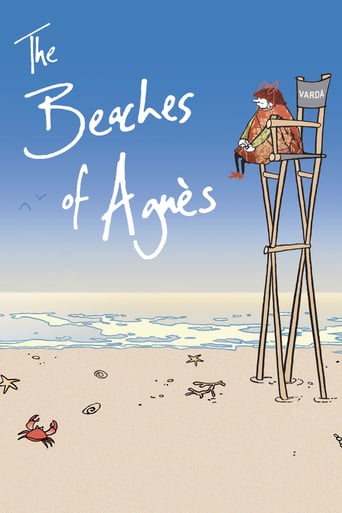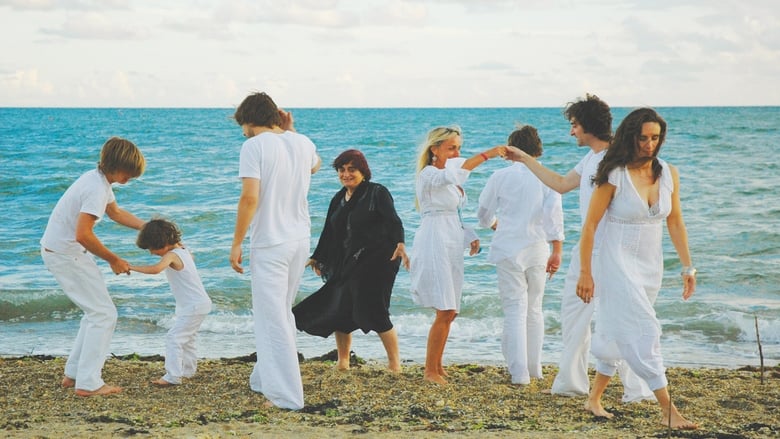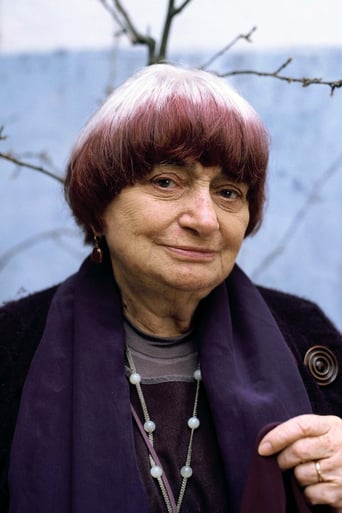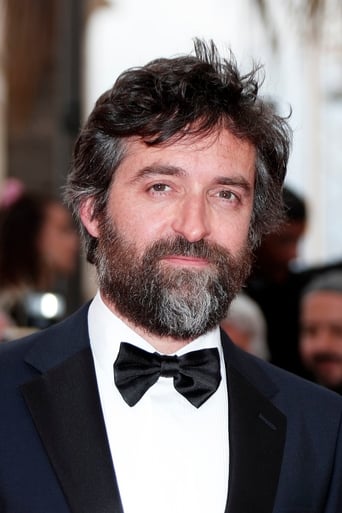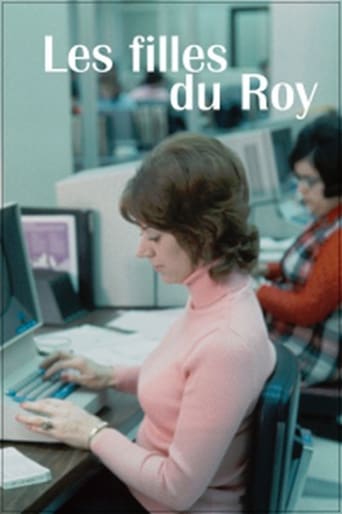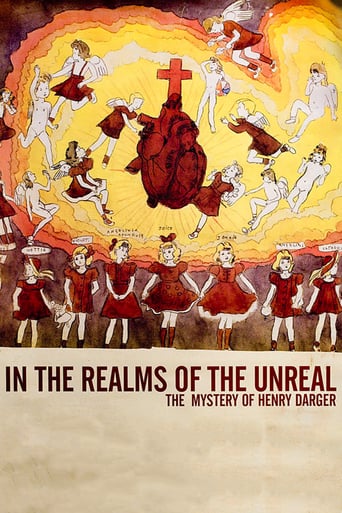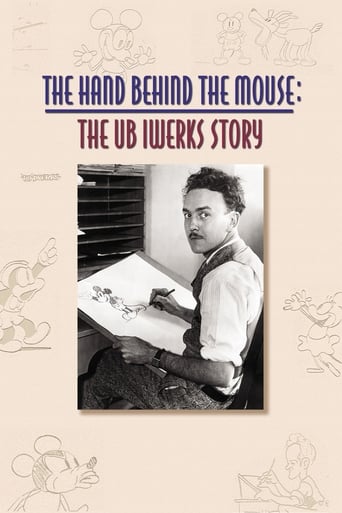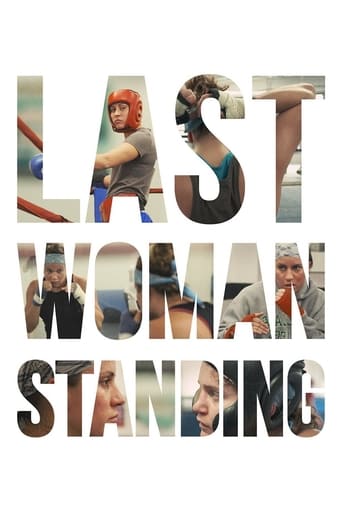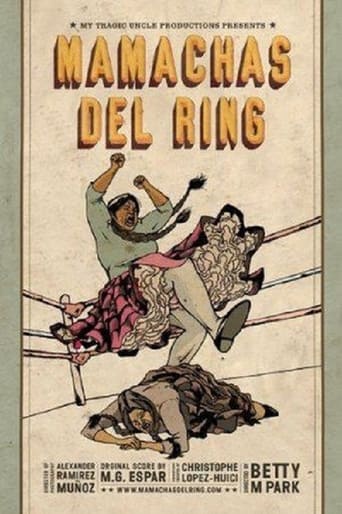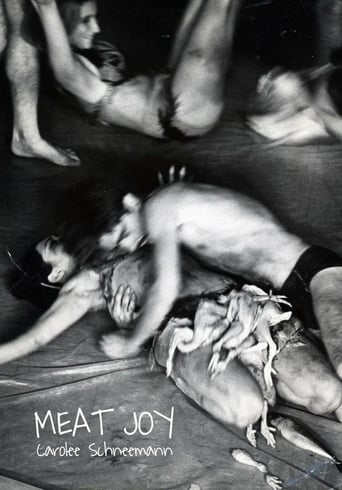The Beaches of Agnès (2008)
Filmmaking icon Agnès Varda, the award-winning director regarded by many as the grandmother of the French new wave, turns the camera on herself with this unique autobiographical documentary. Composed of film excerpts and elaborate dramatic re-creations, Varda's self-portrait recounts the highs and lows of her professional career, the many friendships that affected her life and her longtime marriage to cinematic giant Jacques Demy.
Watch Trailer
Free Trial Channels
Cast


Similar titles
Reviews
In other words,this film is a surreal ride.
The film may be flawed, but its message is not.
A great movie, one of the best of this year. There was a bit of confusion at one point in the plot, but nothing serious.
This is one of the best movies I’ve seen in a very long time. You have to go and see this on the big screen.
Agnès Varda presented us in this autobiographical movie with her memories of a life devoted to the cinema and not only. She does that in powerful and beautiful images supported by a brilliant, witty and sensitive commentary. In this movie we can see references to several of some of the best Varda's films such as La Pointe Courte, Cléo de 5 à 7 and Le Bonheur, with images, and to some of the greatest and more important figures of French cinema such as her husband Jacques Demy to begin with and also Godard, Catherine Deneuve, Michel Piccoli, Jane Birkin and others. The cut is very intelligent and effective in visual terms combining the present and the past sometimes in simultaneous images with a special effect here and there. A masterpiece indeed.
Granted, I am a huge fan of Agnès Varda's work—and persona. I've seen most of her American releases, which are, unfortunately, far fewer than the 46 films she's directed. Sorry to report that even Netflix only stocks 8 of her films; my local video store and library system, not even 1.Eighty-one-year-old Varda is, first and foremost, a poet who happens to be holding a video camera. And with this, her autobiography, she quickly brings us into the stream of consciousness of her brilliant mind, regaling us with both fantastic images, filmic experiments, and words rendered so quietly and sweetly that it belies their utter veracity. With the fluidity of a Russian ballerina, she weaves still photos, clips from her films, present- day documentary footage, and fictional re-creations.A viewer with a familiarity of her oeuvre will obviously take away greater understanding and enjoyment of this recounting of her life and work. Yet, I believe it's accessible even for the uninitiated, as a tribute to an artist and iconoclast who sustains a strong vision and keen insight into life and art. And a great big heart." 'If we opened up people, we'd find landscapes.' If we opened up me, we'd find beaches," she begins, an apt conceit for the half-Greek filmmaker who has lived her life near the sea. And thus, in the film's opening shots, she constructs a web of mirrors propped on easels in the sand, reflecting the incoming waves. These are fancy, gilded, furniture mirrors, large and small, capturing both la plage and Varda's reflection as she begins the narrative of her childhood. In and of itself, it's a beautiful installation piece—greatly enhanced by the reflexive quality of a sea of cameras filming themselves. Moments later, she sets up family photos on blades of grass in the sand. While discussing an image of herself and her sister in their bathing suits, two little girls appear in current time, wearing the same sorts of suits. "I don't know what it means to re-create a scene like this. Do we relive the moment?" Varda wonders. But her answer seems less about reconstructing the past (this is not a wistful film like Bergman's Wild Strawberries), but more about delight in her powers as a magician with a camera. "For me, it's cinema, it's a game," she says.Some of the film's sweetest moments derive from shots of her family—her two children and late-husband, fellow New Wave auteur Jacques Demy (The Umbrellas of Cherbourg). She obviously has great affection for the "peaceful island," as she describes them. In one lovely scene, the extended family is dressed in white gauze, frolicking. "Together they're the sum of my happiness. But I don't know if I know them, or understand them. I just go toward them."Varda employs an unusual technique of re-creating the major moments of her life/films while bringing her current self into the proceedings. In the age of social networking a la Facebook, with gambits toward entering the past as we simultaneously dwell in the present, this seems a very contemporary notion. With the gift of memory, we both do and don't inhabit all of the times of our life at once. As she states, "I live. And as long as I live, I remember."One of La Varda's most lovable traits is how utterly herself she can be. Her 8-decade-old hair sports its trademark bowl cut, yet in some scenes is colored almost parfait-like (sans cerise) with white on top and deep red around the ends—gloriously unconventional, and wry. And indeed her sense of humor is continually present. She also has the good sense not to take herself completely seriously. After revisiting her early home in Brussels and discovering that it is now inhabited by an avid train enthusiast who prattles on about his collection, she concludes, "The 'childhood home' part was a flop."In 55 years of making films, the director has clearly spent ample time pondering the art of her craft. As she notes, "I think I've always lived in it." This is obviously so, and without traditional tutelage. She claims to have made her directorial debut, La Pointe-Courte, after having taken in just 10 films in her first 25 years. This greatly flouted convention within French film-making of the time, in which training and credentials were paramount. Much of the film concerns images and the context of their creation— the process of birthing, what prompts images into being, the results of their existence, the ripple effects of the filmmaker's art, and the inextricable link between maker and film.Although Varda includes reenactments in this walk backward, she also allows the viewer to be in on their making. It's as if she hopes to underscore the artifice and revels in the fact that we will knowingly suspend our disbelief anyway. In one scene, she sets up a production office atop sand dumped on a city street.The movie's final scene reveals Varda's "shack," a studio she's recently built on the beach. The filmmaker-as-architect metaphor made real, its walls are constructed of strips of celluloid from a 1966 film in carefully chosen colors, bathed in light. The structure is fragile yet appears solid. This is a wondrous metaphor, one that seems to encapsulate the artist's spirit and life. "In here, it feels like I live in cinema," she notes.
I was fortunate to catch (October 30, 2009 in SF) "The Beaches of Agnès" aka "Les Plages d'Agnès" 2008, in French with English subtitles. Agnès Varda is 80 (in 2008) and still so lively, creative, imaginative, giving us delightful reminiscing of The New Wave film period, including the young and the old. What a filmmaker, cinematic lover, unique lady, she is. Besides being a retrospective look at Varda's cinematic life (so far), the film also serves as a loving dedication to the close to 30 years she shared with her husband Jacques Demy - the fabulous w-d-filmmaker who gave us the popular French films entirely sung musically: "The Young Girls of Rochefort" 1967 and "The Umbrellas of Cherbourg" 1964 (Catherine Deneuve was in both of these two gems).If you like movies, film history, graphic design, visual play on imagery (or affiliated to none of the above), you will (still) feel akin to Varda's 'Beaches' whether you thoroughly understands French, speaks the language, been to Paris-France, or not. She has delivered a cinematic journey of going through the various phases of her life, experiences in film-making, and added her unique stamp of Agnès Varda sensibility. It's a good place to be and 'tis fun to hang around with her. As my favorite Emily Dickinson epigram says: Delight has no Competitor, so it is always most. Yes, Agnès Varda is alive and well and still full of humor, bemused or otherwise - a fantastic spirited woman, ever the innovative-discovery eye afresh, so full of wisdom, be it wistful or witty.This film is a great companion piece for viewing with her loving remembrance of Demy: Jacquot De Nantes (1991), which is in Black & White, and Color, documented the hometown childhood origin which grew into the lifelong cinematic passion of Jacques. Another enjoyable Varda-Demy film, anytime.There is an accessible official site USA at "cinemaguild.com/beachesofagnes" and the trailer at "cinemaguild.com/beachesofagnes/trailer.html". Looks like DVD is available, released on March 2, 2010.
Autobiographies can be the worst or the best of things. Either a boring exercise in conceit and self-absorption or a fascinating self-exploration by a person of value.Well, the Agnes of 'Les plages d'Agnès' being Agnès Varda there is no need to worry. She undoubtedly belongs to the second category.It goes without saying that to fully appreciate this wonderful film you have to be a minimum acquainted with Varda's oeuvre. But a minimum is enough, for it does not take long before the lady starts captivating you, not by boasting about all the masterpieces she made, but by creating a new kind of story-telling right before your eyes.One thing I am pretty sure of is that there is no other film, autobiographical or not, that looks like "Les plages d'Agnès".Of course there is no question that Varda's life is rich and worth telling: she worked for and with great artists, she was married to one of the most original French directors ever (Jacques Demy), she covered the fledgling Chinese and Cuban revolutions, fought in favor of feminism when it was not yet fashionable to do so. The real issue for the director was in fact to find HOW to talk about herself. Well after viewing "Les Plages d'Agnès", I can tell her (and I am far from being the only one to think so): "You did it brilliantly, Agnès".Indeed Agnès Varda is not content to go through the motions of the standard autobiographical movie: talking face to the camera or in voice over, interviewing witnesses of her life and illustrating her words with significant clips. She does that of course but she knows how to enrich the material through a lot original finds: the mirrors on the beaches,her walking backwards to show she goes back in time, the circus artists on the beach, recreating her Cine Tamaris production office on a fake beach in Rue Daguerre, her sailing a boat from Sete to Paris as an allegory of the evolution of her career, etc. etc. Agnès Varda never rests on her laurels throughout. Quite the contrary: she creates, invents, tries out new things sequence after sequence. In the film she calls herself 'une petite vieille' (a short old lady) but I suspect she says so out of vanity because she does not look old at all. Actually, she has retained all the freshness, all the spontaneity of the young lady she once was. Don't refrain from seeing this film even if it does not appeal to you in the first place. When the end credits roll you will probably - just like I did - utter with a sigh: "Is it already the end?"

